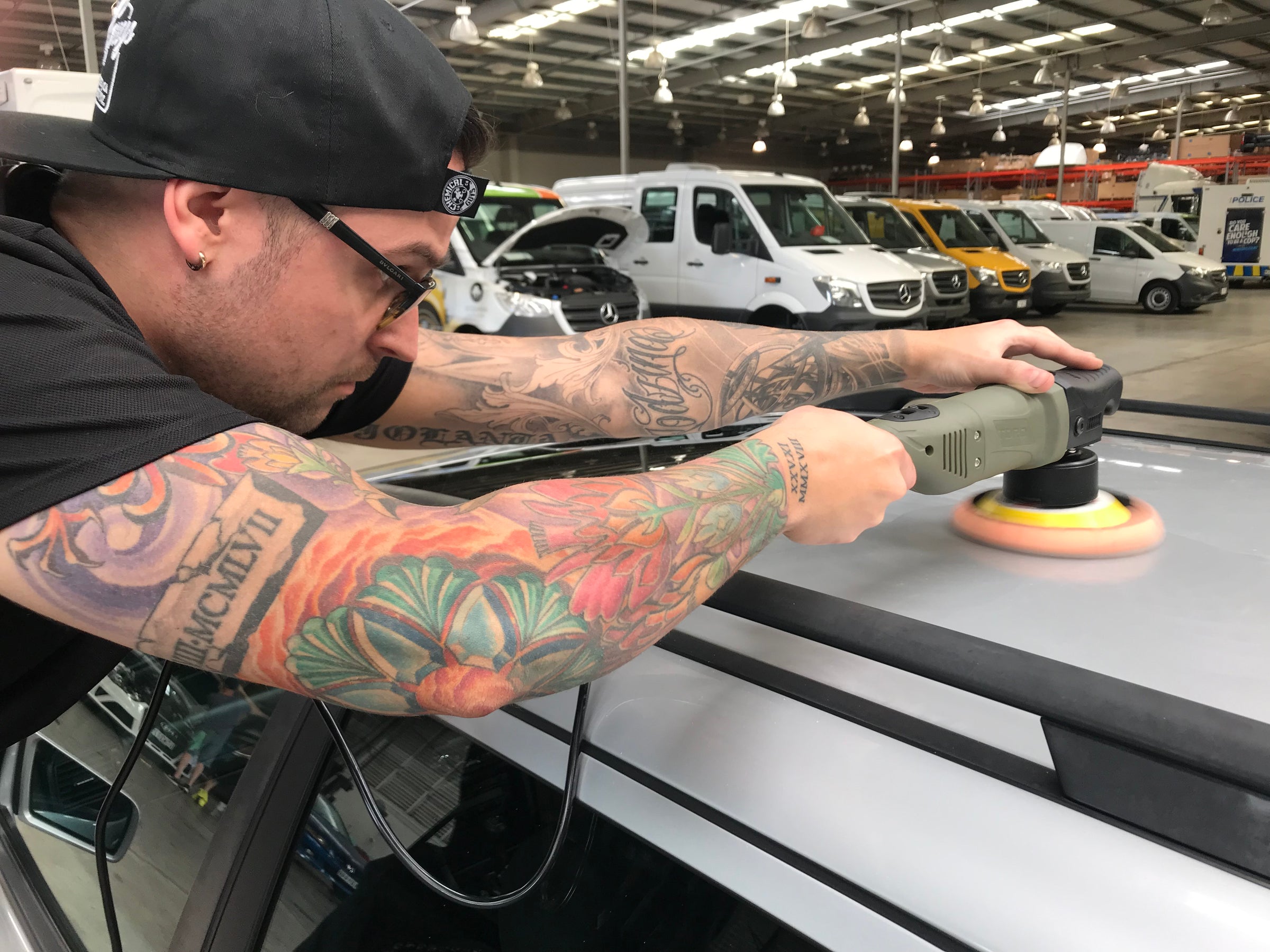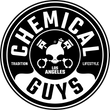
Polishing Pads
Our Pads come in a range of sizes, you want the pad to be wider than the backing plate so that the backing plate does not hit the paint when polishing. Our most common size is 5.5" which fits a 5" backing plate. this machine and pad size we find is the sweet spot for most cars. That is it tapers out from 5" at the backing plate end to 5.5" at the paint surface end. this is the size that fits out TorqX and 10FX polishers. The 6.5" pad fits a 6" backing plate, like on our 22D polisher, this is good for large flat areas like on a motorhome. We also have 4" pads that fit our 3" backing plates, there is less range here and these are normally used for headlight restoration on a drill. We have a range of backing plates to suit dual action and rotary polishers in stock if you want to change your backing plate size.
The hole is for cooling and it makes a huge difference, as does the hex logic pattern. we no longer stock 5.5 and 6.5" pads without these as they make such a huge difference. they work better and last longer. We can special order in pads without cooling holes or the hex pattern, but we will try to talk you out of them as they are worth the extra money! Cooling holes are not available on the smaller 4" pads due to their size.
We recommend using at least 3-4 pads per car, as they get hot and clogged as you polish, and then are less effective and can leave marks. If you keep going and going it can get so hot that it can burn the paint or even the backing plate. A pro polisher will swap their pads regularly as they go to keep moving and also to keep a cool clean effective pad. Use a little pad conditioner, you don't need lots but you do need a little. Don't use water as this can dilute the oils in the polish counterintuitively reducing the lubrication. Then at the end of the day clean the pads with our pad cleaner and a pad cleaning brush and running water. Don't leave them overnight as the polish can dry inside the pad creating hard spots that can do damage. If you do this you will get better results faster and your pads will last longer.
We recommend doing a test spot staring with the least aggressive combination of pad and polish first, then stepping it up as needed. The Orange pad and V36 is a great combination as this is the most aggressive you can go and normally get away with a 1 step polish. beyond this the more aggressive pads/polishes will remove more defects faster and will also leave small marks from the polishing process, which you then need to go over with a finer polish and pad combination to remove, in a "2 step" polish.
Colour Coding of Pads:
Yellow Heavy Cutting Pad
Use this pad to apply compounds or polishes to remove severe oxidation, swirls, scratches and water spots in conjunction with a polishing compound. It is the most aggressive and should only be used on oxidized and older finishes. Always follow this pad with an orange pad and a fine polish and then a white pad to refine the paint until it is smooth.

This firm, high density foam is ideal for scratch and defect removal. The orange foam offers the correction of a typical compounding pad whilst at the same time allowing the polishing ability of light cut foam pad. When used with a heavier compounds it will remove moderate swirls and scratches with little or no haze. It's an all around pad that will work on most light to moderate imperfections.

Green Heavy Polishing Pad
This pad produces less spot heating and has a unique compression/load/deflection ratio which means it conforms quickly to contours. It is strong enough to remove swirls and scuffs while at the same time producing a high gloss swirl free finish. This foam is also ideal for applying one-step cleaner waxes and polishes. It is a balance of polishing and finishing that is perfect for an all-in-one product application.

White Medium-Light Polishing Pad
Less dense foam formula for the application of cleaner waxes, micro-fine polishes and sealants. This pad has a very light cutting power so it's perfect for pre-wax cleaners. It is the most well used pad as it is ideal for application of pre-wax cleansers as well as many finishing polishes.

Blue Glaze & Cleaner Foam Pad
Unique composition complements all glazes and light surface cleansers perfectly delivering a super fine finish for use with ultra fine polishes or any glaze.

Black Finishing Foam Pad
Composition is firm enough to withstand added pressure during final finishing to remove buffer swirls. It has no cut and will apply thin, even coats of waxes, sealants and glazes.

Red Perfection Pad-Ultra Fine Finishing Pad
This pad has an ultra soft composition which has no cut for applying refined waxes and sealants over sensitive painted finishes.

CLEAN PADS WORK BETTER
Polishing pads fill up with spent polish abrasives and removed paint residues as the job wears on. This residue and removed paint clogs pads and causes inconsistent polishing work during a job. All these residues can also turn into a hard cement-like mass inside buffing pads if left to dry, which ruins the polishing abilities of the pad. The secret to maintaining polishing pads for years of reliable use is in keeping them clean. Clean out old compound, particle abrasives, and removed paint residues to keep pads soft, flexible, and ready for controlled paint removal. Keep one set of polishing pads and clean then during the job to maintain maximum effect and shorter polishing times, or change out between several sets of pads for nonstop polishing and clean them all at the end of the day for faster turnaround time. Keep a bottle of Chemical Guys Polishing Pad Cleaner and Rejuvenator on hand to clean, restore and prolong your buffing and polishing pads. The ergonomically designed Foam Pad Cleaning Brush scrubs wax and polishes out of the foam and restores its original texture. Professionals polishing lots of cars in a shop setting benefit from the fast and thorough action of the Grit Guard Universal Pad Washer, which cleans and dries all types of buffing pads on virtually any machine in seconds.







































